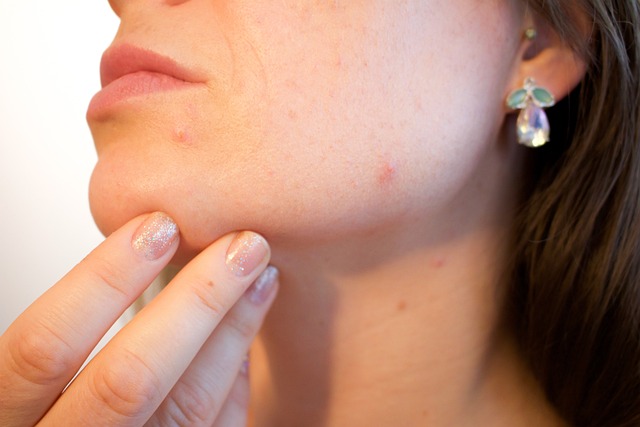As winter approaches, many of us start to experience the common problem of dry skin. Cold winds, dry weather, indoor heaters, and even long hot showers can all contribute to skin losing its essential moisture. This lack of hydration can lead to issues like itching, chapped and cracked skin, and in more severe cases, skin irritation or conditions such as eczema, psoriasis, and dermatitis.
To keep your skin healthy and hydrated, here’s a simple, effective dry skin care routine that will help you maintain your skin’s moisture during the winter months.
Table of Contents
ToggleWhy Does Skin Become Dry in Winter?
During winter, the air becomes colder and holds less moisture. This dry air, combined with indoor heating and hot showers, strips the skin of its natural oils, leading to dryness and discomfort. Moreover, cold weather often leads people to drink less water, reducing internal hydration, which only worsens the issue.
If you’re worried about winter dry skin problems, follow these tips to help maintain skin moisture and keep your skin looking and feeling its best.
1. Establish a Gentle Winter Skin Care Routine
Using a gentle cleanser during the winter months is crucial. Many regular cleansers can be too harsh and strip away the skin’s natural oils, which are necessary for retaining moisture. Look for products labeled as “gentle” or “hydrating,” ideally free from sulfates and other harsh ingredients.
Tip: Cleanse your face only once or twice a day to avoid unnecessary dryness. After cleansing, always apply a moisturizer while your skin is still damp to lock in hydration.
2. Moisturize Immediately After Bathing
Applying moisturizer or body oil right after bathing is one of the most effective ways to maintain skin hydration and protection. When your skin is slightly damp, it absorbs moisture more readily. Choose a rich moisturizer with ingredients like hyaluronic acid, glycerin, or ceramides to help restore your skin’s natural barrier.
Tip: For the best results, apply moisturizer within three minutes of bathing. This practice will help seal in the moisture and keep your skin hydrated for longer.
3. Drink Plenty of Water
We often drink less water in winter, but staying hydrated is just as important during colder months. Drinking enough water supports skin health by maintaining hydration from the inside out. Aim for at least 8 glasses of water daily to keep your skin and body well-hydrated.
Tip: Carry a reusable water bottle with you as a reminder to stay hydrated throughout the day.
4. Protect Your Skin with Warm, Moisture-Locking Clothing
Dry skin needs extra protection from the elements, especially in winter. Wear protective clothing like scarves, gloves, and hats when you’re outside to shield your skin from cold winds and prevent moisture loss. Inside, consider using a humidifier to add moisture back into the dry winter air, especially if you’re using heaters that can make the air even drier.
Tip: Opt for natural fabrics like cotton or silk that are gentle on your skin and don’t cause irritation.
5. Don’t Forget Your Lips
Lips are particularly susceptible to dryness and chapping during winter. Keep a nourishing lip balm handy and apply it frequently, especially before going outside and before bed. Look for lip balms with hydrating ingredients like shea butter, beeswax, or coconut oil.
Tip: Avoid licking your lips, as this can actually dry them out even more. Instead, apply a thick layer of lip balm for deep hydration.
6. Minimize Exposure to Heat Sources
While sitting by the fireplace or using space heaters can be comforting, excessive exposure to direct heat can further dry out your skin. Try to limit your exposure to open heat sources, and maintain a balanced indoor temperature to prevent your skin from losing moisture.
Tip: When showering, use lukewarm water instead of hot. Hot water can strip your skin of its natural oils, worsening dryness.
When to See a Dermatologist
If dry skin persists or leads to more serious complications like prolonged redness, intense itching, or cracks that bleed, consult a dermatologist. These could be signs of skin conditions such as eczema or psoriasis that may require professional treatment to prevent further irritation or infection.
Final Thoughts: Stay Consistent with Your Winter Skin Care
Dry skin during winter is common, but with a consistent and thoughtful skincare routine, you can keep your skin healthy and hydrated. Regularly following these tips will protect your skin from the harsh winter elements and keep it soft, smooth, and irritation-free.
Remember, the key to healthy skin during the winter is a combination of external care and internal hydration. So drink water, moisturize, and take steps to protect your skin from the cold—your skin will thank you!



Pingback: Is Dermaplaning Good for Your Skin? A Comprehensive Guide for Leaders and Professionals - Wellness Readers Digest
Pingback: 10 Delicious and Nutritious Breakfast Ideas to Kick-Start Your Day - Including Greek Yogurt Bowls, Protein-Packed Omelets, and Sweet Corn Sandwiches! - Wellness Readers Digest
Pingback: Top 5 Blister Treatment for Maximum Comfort, Protection, and Quick Healing: Your Essential Foot Health Guide - Wellness Readers Digest